Het verhaal van Vlaanderen - Season 1
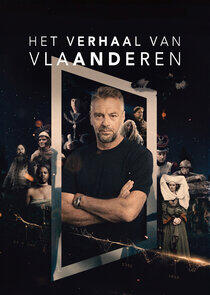
Season 1

Episodes
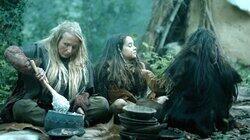
De prehistorie
Presenter Tom Waes presents the formula starring him as narrator and on historical sites or interviewing experts. Chapter One is on the Prehistory, which left least traces, no records. It started in the Ice Age, when the present North Sea was frozen and most of Europe, including Flanders, a windy plain with poor vegetation. The first Homo Sapiens to migrate in were hunter-gatherers, mainly in the woods. Spy is a main finding site of remains of the co-existing Neanderthal, who must have mingled as Flemish DNA is on average still 2,4% from them, the cause of their extinction despite stronger physique and comparable intelligence is unclear. The main ancestors immigrated from the Middle East later, importing seeds and techniques enabling the introduction on by then -temperatures normalizing- fertile land of agriculture, a very different (sedentary) way of life, forming proper settlements and developing social stratification and professional specialization. The metal age saw massive mining, trade, a warrior class, tribal units and primitive states.
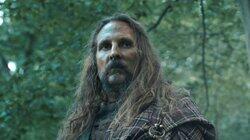
De Romeinen komen
Our Celtic ancestors in Gaul (roughly Benelux and France) lived in small farmer villages, loosely grouped in tribal units. Without a state level, they were a walkover for the flawless, well-equipped Roman war machine, which built a Mediterranean empire since centuries, when ambitious general Julius Caesar decided to gather fame, fortune and future by conquering Gaul. Itw as bloody, food confiscation worse then the fights. Crafty war chief Ambiorix, co-king of the Eburones tribe (roughly modern Limburg), put up a surprising fight wiping out a legion and a half, but that only brought utter vengeance. The Romans brought order, roads, superior technology and countless innovations, as in diet. The local elites gradually adopted the Roman villa lifestyle. The army offered unlimited career possibilities: Marcus Aurelius Carausius from the Menapians (roughly present West and East Flanders provinces) reached command of the North Sea "classis" (military fleet) but kept the riches confiscated from pirates and declared himself breakaway emperor in Britannia, attested by coins, till his deputy murdered him even years later. Only when the the empire weakened and started disintegrating, Germanic neighboring tribes would no longer copy and raid but conquer.
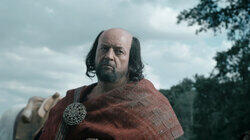
'Duistere' middeleeuwen
After the fall of the (Western) Roman empire, most of its civilization and Christianity were almost wiped away by the Germanic invaders, Flanders has no cities left except the episcopal sees, almost reduced to small village farming and insecurity. The Frakish kings, who established a realm roughly covering Gaul, encouraged missionaries to substitute Catholicism for pagan practices, as St. Amandus managed brilliantly, as attested by his vita, the oldest book in Middle Dutch, never minds the impossible miracles. Princess Judith returned to the Frankish royal treasury castle after her father married her twice to a Wessex king, only to be widowed again. She fell in love with a rather obscure Flemish lower nobleman, agreeing to be 'abducted', the 'French' king grudgingly promoted her lover Baldwin, first count of Flanders (and some other lands). Their son has to succeed as a teenager, but even managed brilliantly to deal with the Viking raids by building palisade walls around various towns, the start of a modern principality administration and the start for Flanders to grow rich, and prestigious thanks to Judith's royal linage.
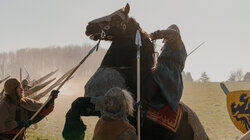
De Guldensporenslag
The countship of Flanders grew and got four of the largest, richest cities north of the Alps (chiefly Bruges, Ghent, Ypres) thanks to the production and trade as luxury good of the top quality of wool cloth, made form imported English wool, sought-after by the rich all over Europe, even in the East. The patrician families who controlled the trade grew richer than petty nobles, while paying the hard-working urban artisans pittance. The French king Philippe Le Bel decided to curtail the power of his richest vassal, so invaded with an occupation army. The patricians welcomed the king, hoping to be rid of comital burdens, but for the artisans it was the last straw, they rose and slew royal knights. The count's family joined them, providing military expertise in two commanders, Jan van Renesse and count Gwijde's grandson Willem van Gullik, who outsmarted the count of Artois, who commanded the royal army, the most feared in Europe, sent to crush the rebellion while breaking the siege of the fled knights in a royal castle at Courtray. The marshy conditions, motivation to fight for their lives and dismissing of the chivalry code of taking hostages for ransom earned them a s famous, the outrageous victory. Two later defeats soon undid the count's victory, but the cities granted an unprecedented say to the artisans unions.

Zwarte dood en gouden tijden
The term Black Death illustrates the first wave of bubonic plague, striking Europe and killing up to half of the populations as it rapidly spread, was an utter nightmare, especially in cities, as people sharing (bed)rooms with the whole household including animals were rapidly contaminated and customary bloodletting didn't help at all. Ignorant the main factor were flees on rats, one turned to desperate devotion -notably self-flagellation- or put scapegoats -like Brussels Jews- on the stake as alleged poisoners. Luckily it also died down quickly, and later waves never were nearly as bad. Rendering labor force scarce allowed significant social progress. Flanders grew wealthier then ever, the wool cloth trade having been out-shun still by the status of Bruges as Europe's main trade port. The ducal dynasty of Burgundy (a junior branch of the French kings) united most of the Low Countries, mainly the work of duke Philip the Good, seeking to avenge his father John's murder at royal instigation, who used diplomacy and dynastic marriages brilliantly to rise to a status rivaling kings, especially in opulent splendor, centering on the vast -alas burned-down- Coudenberg palace in Brussels. Only decades later, his warrior son Charles the Bold's death on the battlefield was a nightmare start for his teen heiress, Mary, who still managed to keep the lands together, restore relative peace and wealth and wed archduke Maximilian of Austria, the future emperor who started the long Habsburg rule within Europe's great Holy Roman Empire powerhouse, definitely as she died young during a falcon hunt.
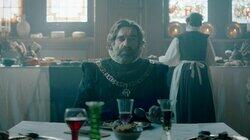
Hoe geraak ik in de hemel
After the Habsburg dynasty inherited the Low Countries from the Burgundy dynasty, they were governed as part of a vast empire dominated by Spain (and Portugal) with huge colonies. Europe was however being torn apart by dissension against the previously evident, almost omnipotent Catholic church. Under most devout king Philip II, Calvinists, opposing 'excessive devotion', challenged both ecclesiastical and royal authority by starting an epidemic of vandalizing raids on churches, starting at Steevoorde monastery, a center of the most despised cult of the Holy Virgin. The king sent his 'iron duke' of Alva, a respected, rigid general, who immediately installed a reign of terror centered around a special court that passed over 12000 death sentences, including the counts of Egmont and Hoorn, among the Low countries top nobility, meant as a deterrent but actually stirring general hatred against Spanish oppression. This escalated into the Eighty Years (civil) War, which wrecked the Low Countries bloodily and ultimately exhausted the parties (basically Catholic v. protestant) to conclude the Westphalian peace treaties of 1648. One remarkable episode was the failed attempt to break the Spanish siege of Antwerp and block the Scheld -making it the world's richest port- using fire ships. Afterward, the Catholic character of the remaining Spanish south -roughly Belgium- was emphasized during the Counterreformation, remaining more dominant then ever until the industrial revolution and secularization.
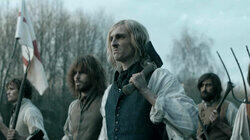
Voor Outer en Heerd
The Brabant Revolution was a 1789-90 popular revolt against the Austrian Habsburg rule, which succeeded by surprise as local recruits massively deserted. The conservative Brussels lawyer Hendrik Vandernoot became prime minister of the independent 'United Belgian States', a federation of nine provinces (roughly Belgium), but repressed his progressive partner Jan Frans Vonck's party, only to be smashed by Habsburg troops back to before. After the French Revolution managed to annex the Southern Low Countries, their impose modernization, abandoning Catholicism and press-ganging farmer sons for their endless wars, an amateur peasant revolt 'for altar and heard' called Boerenkrijg in 1798 failed utterly to achieve any military result, but set the mood for later after centuries of relative obedience to feudal masters. The United Kingdom of the Netherlands established by the victors over Napoleon was unpopular, a 1830 revolt against king William II starting at the opera resulted in the unplanned independence under the name Belgium.
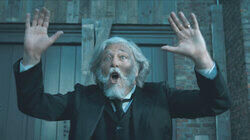
De industriële revolutie
In the reign of Leopold I, the young Belgium was leading the Industrial Revolution second only to Britain, with such novelties as the continent's first railroad, making it the world's fifth-wealthiest economy. Yet for the working class, life as factory laborer was even worse, especially into 'continental Manchester' Ghent, often packed into unsanitary pauper housing, cesspits for diseases. The rich 2% who paid enough taxes to qualify for the vote opposed social reform, until a as trike wave allowed the socialist movement winning its main demand: the general vote, albeit it multiple for the rich and excluding women. .The exploitation of the Congo as king Leopold II's private colony was particularly harsh, yet for long the ordinary Belgians barely knew about the excesses, flocking to stereotypical world exhibition 'nicker village' reconstructions known as 'people gardens'.
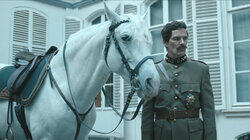
De Groote Oorlog
Despite king Albert I's desperate efforts to keep out of the looming Great War, neutral Belgium was run-over by the Germans on the way to France, except the Yser corner at sea, which was flooded, created the least comfortable trenches for four years, but at least the Belgian troops were spared senseless mass wave attacks on enemy lines. The 'king-knight' achieve popularity, and after the German capitulation spear-headed some social reforms, especially the general single vote for men, while the scarcity of labor finally allowed better conditions from the reconstruction, even paid holidays and restricting working hours. Hobbies became popular, and u-youth movements, part of the fertile ground for the rise the 1930s of right-wing movements ready to side with Fascism in World War II, spurred by the Great Depression after the 1929 stock crash caused world economy to go in a downward spiral with mass unemployment.
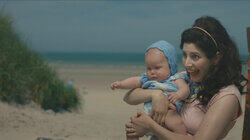
Van 1939 tot 1999
Recently Updated Shows

Silo
In a ruined and toxic future, thousands live in a giant silo deep underground. After its sheriff breaks a cardinal rule and residents die mysteriously, engineer Juliette starts to uncover shocking secrets and the truth about the silo.
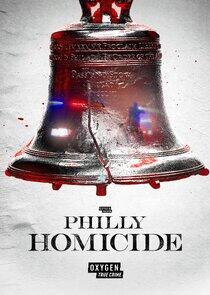
Philly Homicide
Born and raised in the City of Brotherly Love, Lt. Chris McMullin (Bucks County Sheriff's Office) hosts "Philly Homicide." McMullin spent several years as a Philadelphia P.D. patrol officer before working his way up to become a detective with Bensalem P.D., where he investigated everything from robberies to assaults, sex crimes and homicides.
In each hourlong episode of "Philly Homicide," McMullin gives unique insights on crimes that took place in a region steeped in rich history, vibrant culture, and known for tenacity and grit. Archival footage, exclusive first-person interviews with former and current Philly area detectives and cinematic recreations provide an insider's view into the heartrending cases Philly's finest diligently worked to solve in the city known as America's birthplace.

Naked Attraction
Naked Attraction is a daring new dating series that starts where some good dates might end: naked. Modern dating is business. Simple decisions are influenced by countless factors: what you wear, what you do and how you present yourself online. Filtered photos, push-up bras and enhanced profiles are just a few of the things that can get in the way of singletons finding 'the one'. But what happens if we're stripped of everything? Could picking a partner based solely on the naked body and animal magnetism help us find our perfect mate? In each episode, two new singletons join host Anna Richardson as they seek to choose a date from a selection of six naked people, who will be revealed to them one body part at a time. Round by round, they whittle these six naked suitors down to one, based solely on pure physical attraction.

Impractical Jokers
Four longtime friends take dares to outrageous new levels in truTV's hilarious series Impractical Jokers. Q, Murr, Joe and Sal bravely face some of the most unbelievably awkward and brazen hijinks yet, daring each other with over-the-top challenges that are guaranteed to set a new side-splitting standard.
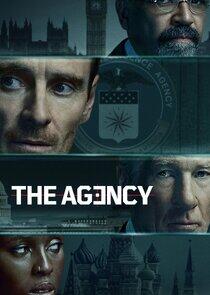
The Agency
The Agency follows Martian, a covert CIA agent ordered to abandon his undercover life and return to London Station. When the love he left behind reappears, romance reignites. His career, his real identity and his mission are pitted against his heart; hurling them both into a deadly game of international intrigue and espionage.